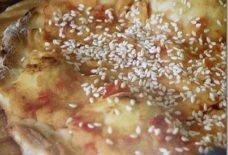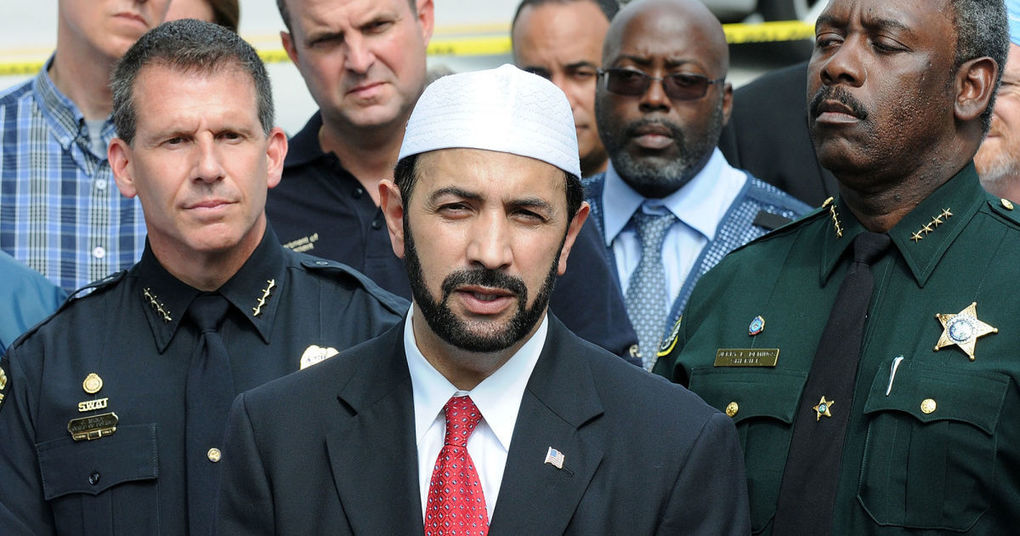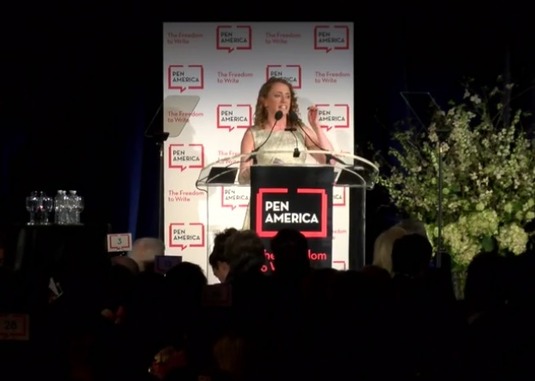The Orlando Shootings and American Muslims – The New Yorker
By Robin Wright
New Yorker
Hena Khan, the author of best-selling children’s books, thought Muhammad Ali’s funeral on Friday was going to be a turning point for American Muslims. “Ali spent his life trying to show the real Islam—battling Islamophobia even as he battled Parkinson’s disease. That’s what was highlighted after he died,” she told me this weekend. “It was nice to feel proud—and to see people saying ‘Allahu Akbar’ interpreted in a positive way.”
On Saturday, Khan was herself honored for the publication of “It’s Ramadan, Curious George,” a groundbreaking new book that also tries to span the cultural chasm for a new generation. The Diyanet Center of America packed its auditorium with kids and their parents to hear Khan read from her book. In this latest spinoff, the mischievous simian learns from his friend Kareem about the sacred Muslim month of fasting, good deeds, contemplation, and evening feasts. Together, they help with a food drive for charity. George gets up to his usual antics, this time planning a good deed to donate all the shoes that Muslims leave outside a mosque when they go in to pray, only to be stopped in the nick of time. In the evening, George and Kareem break the fast together with pizza and chocolate-covered bananas. In honor of Ramadan, The Man in the Yellow Hat—the caregiver who brought Curious George to America seventy-five years ago—dons a yellow fez.
At the end of Khan’s reading, a teen-ager dressed as Curious George raced down the aisles, onto the stage, and fist-bumped Khan. The kids went wild. “It was a weekend of hope and feeling inspired,” Khan told me. “It was a time of reaffirmation,” especially during the first week of Ramadan.
On Sunday, Khan woke up and, as is her habit, checked the news on her cell phone before waking her family. It was consumed with the killings at Pulse, the gay night club in Orlando, Florida. “First it was twenty people, then fifty,” she told me. “I thought, Not another shooting! When is this going to stop? This is insanity.
“Then I saw the name,” Khan said, her voice choking back sobs. Omar Mateen, the lone gunman in the largest terrorist attack in the United States since the September 11th attacks, in 2001, is an Afghan-American. Khan is Pakistani-American. Both are second-generation. Mateen, who was twenty-nine, was born in New York and later moved to Florida. Khan, who is forty-two, grew up in the Washington, D.C., area and now lives with her husband and two children in the Maryland suburb of Rockville.
“It added a whole new layer of anguish,” she told me. “I bore this tragedy as much as any American, and then to see his name. You can’t even find the words. It’s unbelievable. And during Ramadan! As a Muslim, your heart sinks.”
Ramadan runs from June 6th until July 5th. The timing is based on Islam’s lunar calendar, which shifts by eleven days each year. Last month, Muhammad al-Adnani, the isis spokesman, released a video calling on other jihadists “to make it a month of calamity everywhere for non-believers . . . especially for the fighters and supporters of the caliphate in Europe and America.” A State Department report warned that a jihadi sacrifice during Ramadan “can be considered more valuable than that made at other times, so a call to martyrdom during the month may hold a special allure to some.”
Muslim groups across the United States rushed to condemn the attacks. Standing with Orlando officials, Muhammad Musri, the president and imam of the Islamic Society of Central Florida, called the attack “monstrous.” He appealed to Muslims to donate blood for the wounded and to coöperate with Florida police and the F.B.I. At a hastily organized press conference in Washington, Nihad Awad, of the Council on American-Islamic Relations, the largest Muslim civil-rights and advocacy organization in the United States, scolded isis. “You do not speak for us,” he said. “You do not represent us. You are an aberration. You are outlaws.” He went on, “They don’t speak for our faith. They claim to, but 1.7 billion people are united in rejecting their extremism and their acts of senseless violence.”
Awad also pledged to stand with the gay community. “For many years, members of the L.G.B.T.Q.I. community have stood shoulder to shoulder with the Muslim community against any acts of hate crimes, Islamophobia, marginalization, and discrimination. Today we stand with them shoulder to shoulder,” he said. “The liberation of the American Muslim community is profoundly linked to the liberation of other minorities—blacks, Latinos, gays, Jews, and every other community. We cannot fight injustice against some groups and not against others. Homophobia, transphobia, Islamophobia—we cannot dismantle one without the other.”
That has been a common theme in the reaction among America’s Muslims. Khaled Latif, the executive director of New York University’s Islamic Center and a Huffington Post blogger, wrote on Facebook, “Thinking of my brothers and sisters in the LGBTQ community this morning. I can only imagine how the loved ones of those killed in last night’s horrific actions in Orlando are feeling. The only way to make sense of such senseless acts is through living with hope, compassion and love. My thoughts and prayers are with you all.”
Khan, the children’s-book author, has also worked with the Institute for Social Policy and Understanding, a Muslim group based in Dearborn, Michigan, which published a report on the common challenges faced by Muslims and the gay community. “I view the L.G.B.T. community as an ally in fighting bigotry,” she told me. “There are so many parallels. Anti-Sharia and anti-gay laws reflect overlapping bigotry. We’re learning from each other. The fact that this community was targeted is tragic.”
The mother of two boys, aged eleven and fifteen, Khan posted a reflection on her Web site last October about anti-Muslim campaigns in the United States. “My gut reaction when I heard about the hatred-inspired anti-Muslim protests that are taking place later this week across the country was to grab my children, crawl under the covers of my bed, and distract us all with a Sponge Bob marathon,” she wrote. “My instinct is to retreat to a safe haven and hide, much like I did when I was young child. The difference is that when I was little, I had to wait until Saturday morning for the Looney Toons, and the threats were largely external—fostered by a Cold War and a common enemy that united us all in fear of a nuclear holocaust.
“Today, in this increasingly confusing world I wonder, who exactly is the enemy? Is it . . . me? My children? My Muslim family members who do amazing things that don’t make the headlines: strengthening government systems for the Department of Homeland Security, conducting flight safety tests on aircrafts, performing skin grafts on burn victims? Is it isis? The Taliban? Russia? Or is it the armed hate groups united under a false banner of ‘humanity’ planning to target mosques and Muslim communities to intimidate and bully us in an attempt to take back America from ‘people like you’?”
In the last of several conversations we had over the weekend, Khan said the identification of the shooter as a Muslim had consumed her. “I have this intense fear that it is going to change everything,” she said.
Source: www.newyorker.com






